During the General Assembly of the World Intellectual Property Organisation (WIPO), DPMA President Schewior had the opportunity to hold numerous bilateral talks with counterparts from all over the world.

Reception in Geneva: Ms Schewior is welcomed by WIPO Director General Tang to the General Assembly.
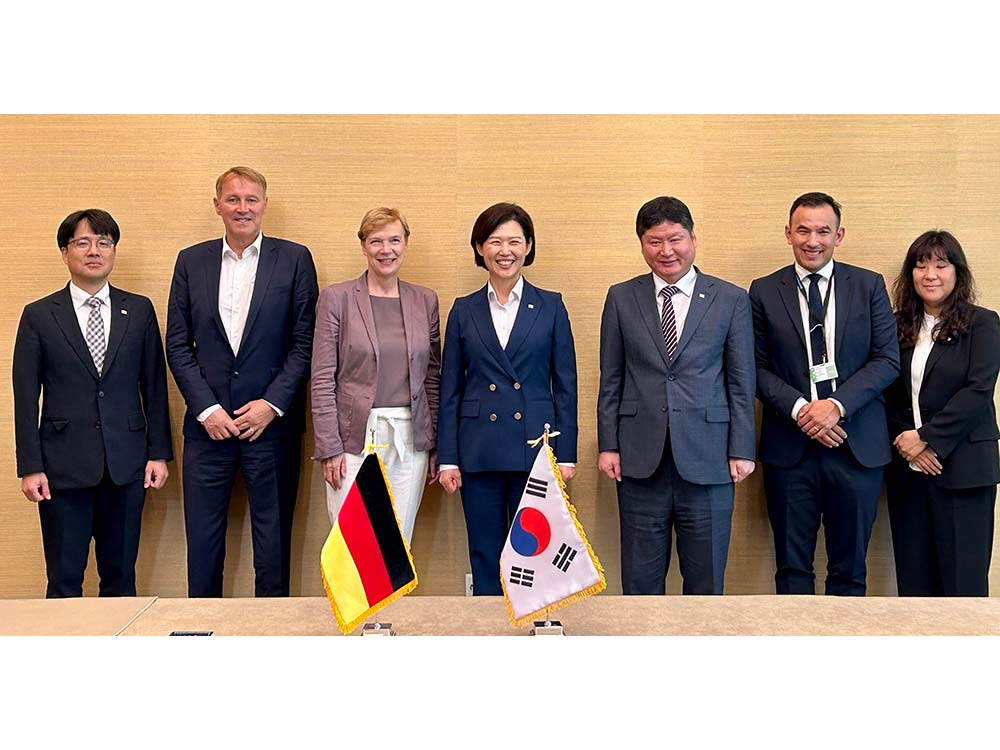
First meeting with Ms Lee, Commissioner of the Korean Intellectual Property Office (KIPO)

Ms Schewior also met Dr Shen, Commissioner of the China Intellectual Property Administration (CNIPA), in Geneva.

Meeting with Mr Georgaras, Commissioner of the Canadian Intellectual Property Office (CIPO)

DPMA President Schewior with Ms Kerimbaeva, Director of the State Agency of Intellectual Property and Innovation of the Kyrgyz Republic (Kyrgyzpatent).

Meeting with Mr Williams, Director of the UK Intellectual Property Office (UK IPO)
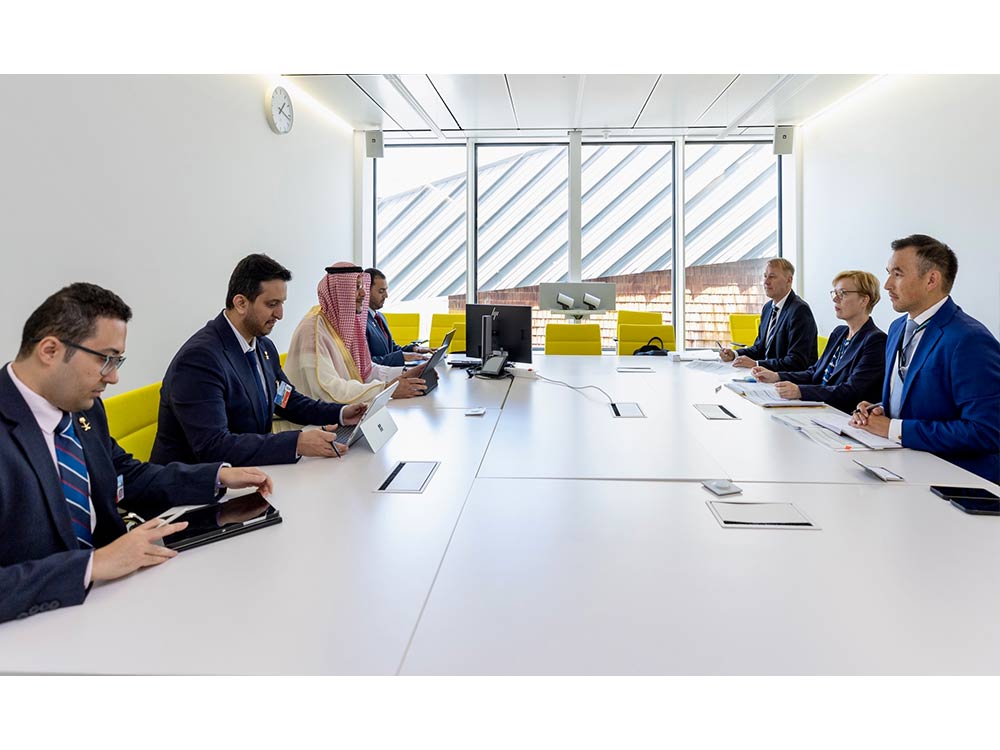
Bilateral talks with Dr Al-Swailem, CEO of the Saudi Authority for Intellectual Property (SAIP)

Ms Schewior also met Mr Hamano, Commissioner of the Japan Patent Office (JPO).
There was particularly close cooperation with the Japan Patent Office (JPO) in the year under review. In bilateral meetings at working and management level, we were able to discuss important topics and developments and to further intensify our cooperation.
On 16 March, the DPMA welcomed a delegation of representatives of Japanese industry and the Japan External Trade Organisation (JETRO) in Munich. The delegation included representatives of renowned Japanese companies operating worldwide. Lectures were given followed by a round of discussions, in which the Japanese delegation exchanged views with DPMA experts on topics important to them, such as the duration of patent examination procedures and the European Unitary Patent.
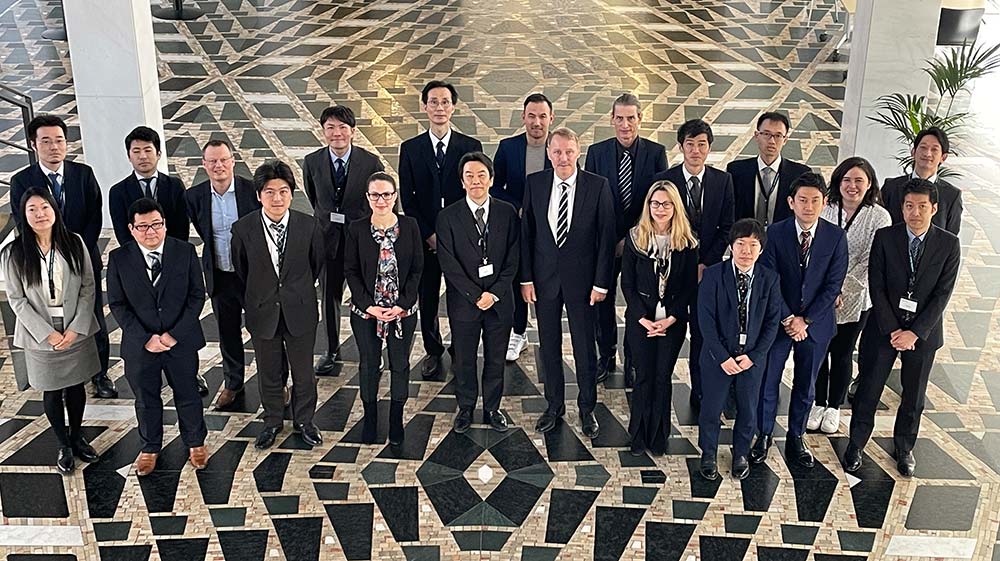
In spring, another patent examiner exchange programme took place in video format with the JPO. Three DPMA examiners and six JPO examiners took part in this programme. They successfully processed parallel applications from innovative fields of technology, such as image processing or hybrid vehicles. In the course of the virtual meeting, the progress of the examination procedures at both offices was discussed and analysed.
The successful patent examiner exchange, which has existed since 2000, is to be continued in the coming years.
At the beginning of October, DPMA President Eva Schewior welcomed the JPO Commissioner Koichi Hamano and his delegation at the DPMA. Representatives of the Japanese Consulate General and JETRO also took part in the discussions, which focussed on further intensifying the exchange of views and experience between the two offices.
On the visit, the Japanese delegation was impressed by the DMPA's digital search programmes. The two offices intend to cooperate closely in this area in the future.
During the meeting, DPMA President Schewior and JPO Commissioner Hamano decided to also continue the patent examiner exchange by making mutual personal visits.
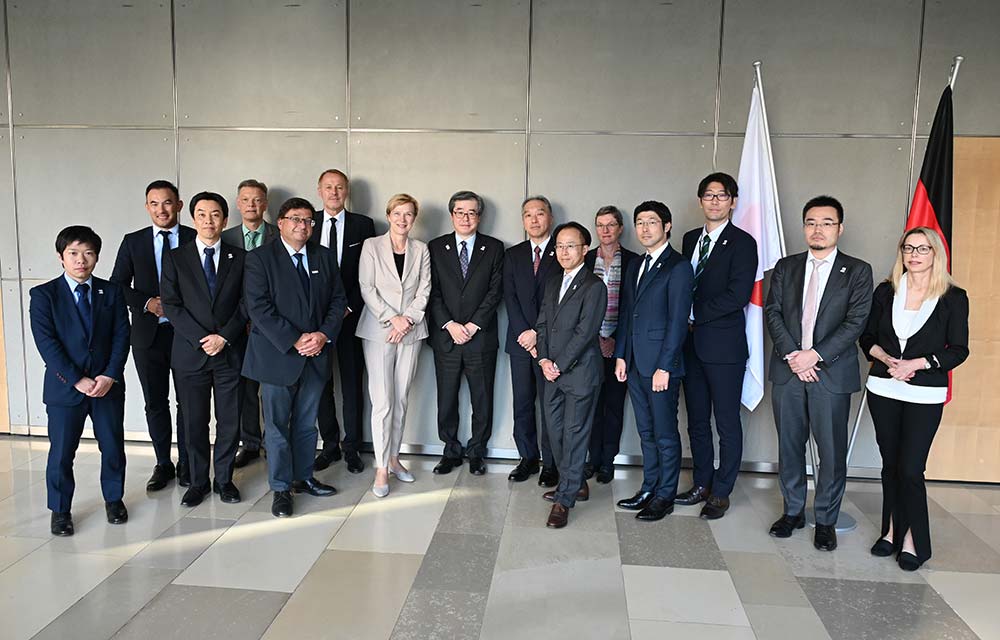
A highlight of the year was undoubtedly the organisation of the three-day WIPO Master Class at the DPMA. After the annual meeting had already taken place in Washington and Beijing, the DPMA in Munich, as the “European patent capital”, hosted this top-class congress of the World Intellectual Property Organisation (WIPO) for the first time.
The event, which took place at the DPMAforum from 31 May to 2 June, was attended by international IP experts from different countries such as the United States, Australia, India and Brazil.
The main topic of the meeting was legal perspectives, which were discussed in numerous lectures and panel discussions. In the plenary session, there was a great need for discussing the new European patent with unitary effect introduced on 1 June.
In addition to the discussions at the DPMA, the participants also visited the Federal Patent Court in Munich.
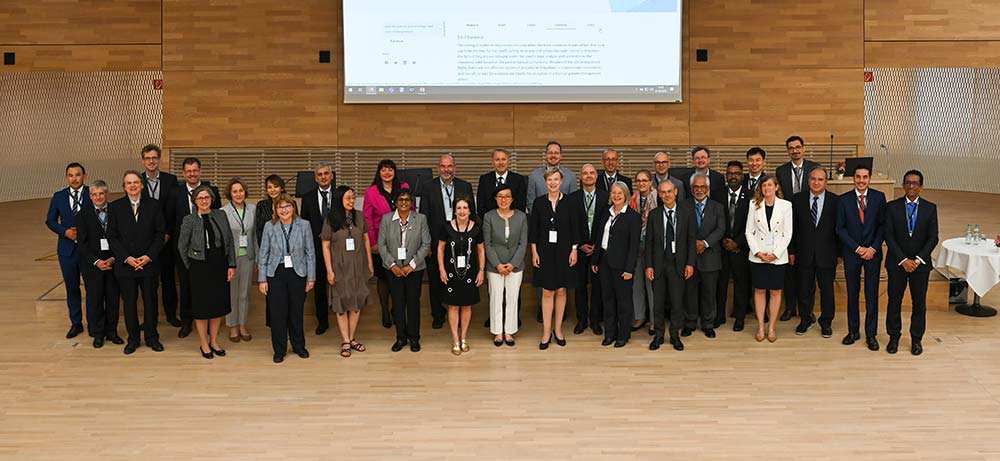
At the beginning of December, the heads of the patent offices of the leading industrialised nations (G7) met in a digital space, the metaverse. It was the first time that such a meeting took place in the metaverse, where participants and artificial characters (referred to as avatars) can appear and interact with each other. Equipped with virtual reality glasses, the heads of the patent offices, the World Intellectual Property Organisation (WIPO) and a leading representative of the Federal Ministry of Justice (BMJ) were able to take part in the online conference led by the JPO.
Dealing with IP rights in the virtual world was one of the main topics of the meeting.
The consensus at the event was that joint efforts should be made at national and international level to enforce and protect IP rights and to take action against the infringement of IP rights that can also occur in the metaverse.
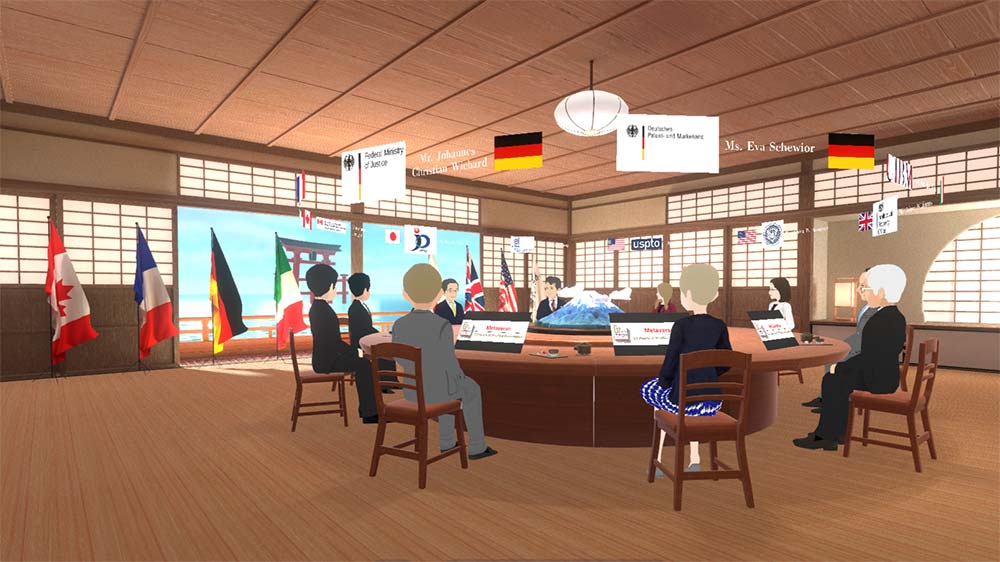
During a two-day meeting, visitors of the Intellectual Property Office of Singapore (IPOS) were provided with an overview of the organisation of the DPMA and of the working methods at the patent examination department. Moreover, they were given insight into the training of a patent examiner at the DPMA. This was illustrated by means of numerous presentations and a visit to a patent examiner's workplace, where the visitors were given a practical demonstration of the search and the procedures of patent examination in Germany.
The convergence of practice programme launched by the EPO aims to bring together and standardise the different procedures in the European patent offices/EPO member states.
In 2023, the staff of the DPMA took part once more in meetings of the EPO's convergence of practice programme on the topics of “Allowable features in drawings” and “Issuing and accepting electronic priority documents”.
The EUIPO cooperates with the national IP offices of the EU Member States to provide converged registration procedures for trade marks and designs in Europe. DPMA experts are represented in working groups on Convergence Projects that aim to harmonise the examination practices of all trade mark offices in the EU. The project to develop a Common Practice on trade mark applications made in bad faith was completed last year and the result was published as a Common Practice at the beginning of 2024. The DPMA is currently involved in the working group on the similarity of goods and services. Other successful Convergence Projects in recent years have included topics such as
- new types of marks: examination of formal requirements and grounds for refusal
- use of a trade mark in a form differing from the one registered and
- criteria for assessing disclosure of designs on the internet
DPMA experts are also involved in the evaluation of previous Convergence Projects and the planning of new Convergence Projects as part of a convergence analysis.
The DPMA is involved in various search and classification tools, including
- the uniform classification database for goods and services, available at TMClass and
- search tools for trade marks and designs in the TMView and DesignView register databases
European cooperation also continues to focus in particular on supporting small and medium-sized enterprises in the effective use of IP rights. The DPMA is also involved in various projects in this area.
